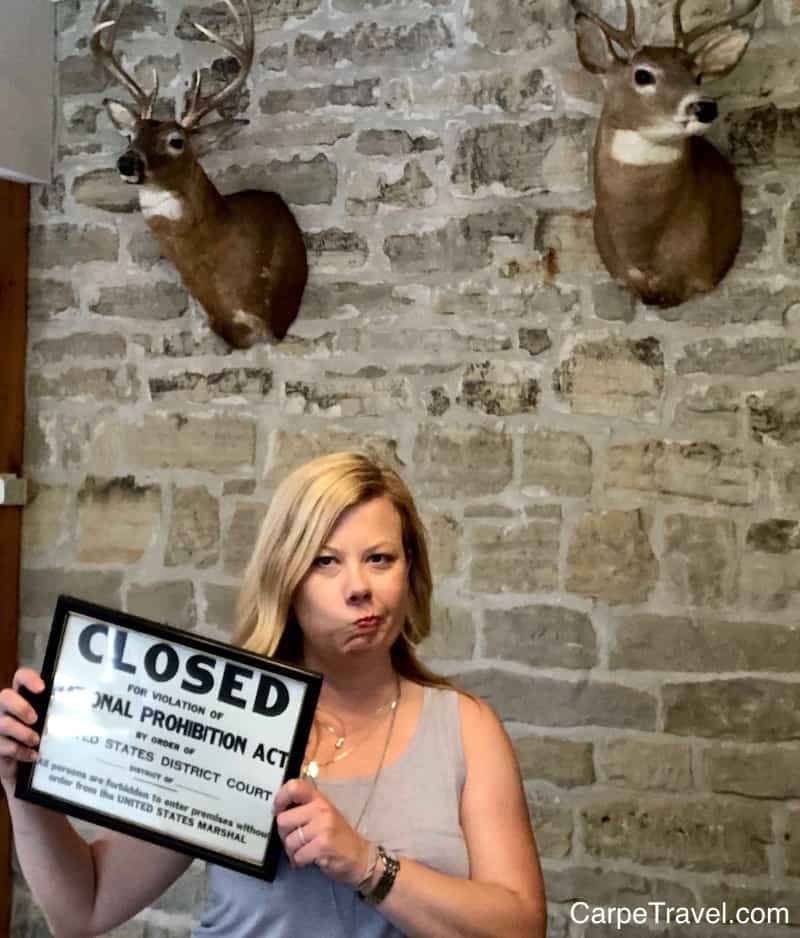Understanding National Prohibition in the United States and Its Impacts
We focus a lot on American wine regions here at Carpe Travel so the topic of National Prohibition often comes up. After all, it killed the wine industry (and all alcohols) throughout the country for more than a decade. I figured it was a good time to give you wine lovers a little refresher on your American history regarding National Prohibition, how it got started, why it even happened and the outcome.
What Was National Prohibition?

Why Did National Prohibition Take Place?
During the mid-1800’s the Temperance Movement began to gain popularity in the U.S., strongly driven by the influence of local churches. I consider it an ultra-conservative group who felt alcohol is evil and at the root of everything wrong in the world. The Devil’s elixir. That’s an exaggeration but for someone in the wine world, it’s not far from it.
The Temperance Movement was a social movement against the consumption of alcoholic beverages. Participants in the movement typically criticize alcohol intoxication or promote complete abstinence from alcohol, and its leaders emphasize alcohol's negative effects on people's health, personalities and family lives. During the 19th and early 20th centuries, the temperance movement became prominent in many countries, particularly in English-speaking and Scandinavian ones, and it eventually led to national prohibitions in Canada (1918 to 1920), in Norway (spirits only from 1919 to 1926) and in the United States (1920 to 1933), as well as provincial prohibition in India (1948 to present).
– Wikipedia
The promise of Prohibition was that it would help to reduce crime and corruption while helping to reduce the tax burden prisons were experiencing and ultimately improve the health of Americans.
IT DID THE OPPOSITE ON ALL FRONTS.
CRIME
CONSUMPTION
While consumption may have gone down at the beginning of National Prohibition, it didn’t last. Drinking booze became more dangerous since people were making their own moonshine at home. Not to mention larger groups were producing and distributing alcohol that wasn’t regulated – there were no safety standards to what you were sipping.
TAXES
The first internal revenue measure adopted by the U.S. Congress, in 1790, was an excise tax on domestic whiskey.
Encyclopedia.com
How / Why National Prohibition Actually Passed?
There are a lot of factors at play here, from all the promises we just talked about – reduced crime, reduced tax burdens on prisons, improved health – but how/why did the government and “we the people” who enjoyed an evening glass of brandy vote for this? Keep reading…
There was no mass vote by WE THE PEOPLE. It was Congress who passed the Volstead Act in 1919 (taking effect 1920), which made the Eighteenth Amendment law.
More context to sip in… The upcoming census in 1920 would redraw voting districts in the states, impacting who would be in Congress after the 1922 elections. This change could dramatically reduce the political support the Temperance Movement had going for it.
Soooo, the leaders of the movement, with the help of Minnesota Rep. Andrew Volstead, chairman of the House Judiciary Committee, who championed the bill in Congress pushed the Volstead Act through in 1919 (taking effect 1920). All before the 1920 census. Gotta give them credit for being both sneaky and smart…
The Volstead Act is the pretty, public relations name for what we call National Prohibition. It’s named after Minnesota Rep. Andrew Volstead, chairman of the House Judiciary Committee, who championed the bill in Congress.
President Woodrow Wilson – bless his heart – vetoed the act. But, Congress voted to override the veto and made the Eighteenth Amendment law.
Raise a Glass to the Repeal!!
National Prohibition remained a political topic during the 1927 presidential election between Herbert Hoover and Al Smith. (President Woodrow Wilson’s second term expired in 1928.) With Hoover’s win, National Prohibition continued on.
It wasn’t until March 1933 when Franklin D. Roosevelt took office as President of the United States – after beating Hoover – that the Volstead Act was amended. It was one of his first acts in office… On Dec. 5, 1933, the 21st Amendment became federal law, repealing the 18th and permitting the manufacturing and sale of alcohol.
It’s important to note, the 21st, allowed states to maintain individual state and local Prohibition laws. Which explains why I couldn’t buy beer or wine on Sundays in college… This opens an entirely new discussion on the insane and sometimes utterly stupid liquor laws we have in the US. That’s another day and another post.
This next December 5, pop some bubble and raise a glass to Franklin D. Roosevelt. Cheers to the one who gave us back our wine!!!

Elaine Schoch
Elaine Schoch (pronounced the German way – Shock) is an award-winning travel writer, wine judge, certified by the Wine & Spirit Education Trust (WSET) Level 2 and founder/editor at Carpe Travel. She is married to The Husband and has two kids, who’s interest and knowledge in wine is quite extensive. Not to mention the stamps in their passports.
Subscribe to Sip in More of the World
Elaine Schoch is an award-winning travel writer, wine judge, American Wine Specialist and certified by the Wine & Spirit Education Trust (WSET II). At Carpe Travel she shares wine travel destination guides for ALL WINE LOVERS – from novices to experienced pros – to help them plan their wine adventures, arming them with insider tips, must-visit spots, and things to see and do beyond the vines.



